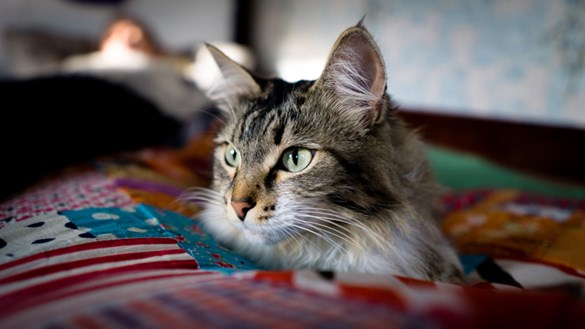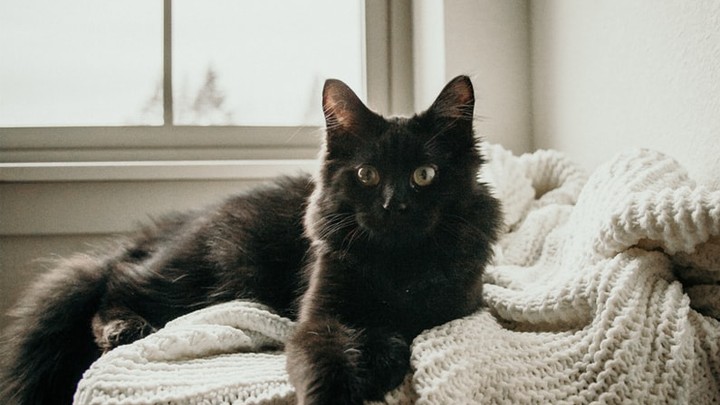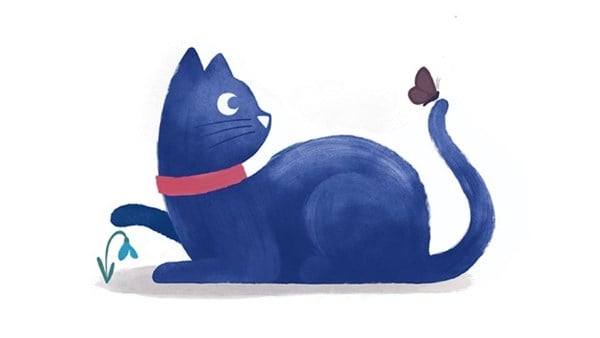Protecting Your Cat Against Diabetes
Diabetes becomes more common in cats as they get older. Learn more about the disease and what you can do about it.

What is cat diabetes?
Diabetes is one of the most common hormonal disorders in cats. It happens when their pancreas doesn’t produce enough insulin, or their body doesn’t respond properly to it.
Insulin is the hormone needed to absorb sugar (or glucose) into the bloodstream, which is then carried to other parts of the body to be used as energy. If insufficient insulin is produced (in the case of type one diabetes) or it’s not used properly (in type two diabetes), the sugar can’t pass from the bloodstream to their organs. This results in either dangerously low levels of sugar in the blood, called hypoglycaemia, or dangerously high levels of sugar in the blood, called hyperglycaemia.
What causes diabetes in cats?
Cats usually develop type two diabetes in the same way as a human would; this occurs when the cells of the body don’t respond to insulin as they should. This type of diabetes is caused by abnormalities in the pancreas.
The exact cause of diabetes in cats is largely unknown but older, overweight cats are much more at risk of developing the condition. It can also develop as a result of other conditions, including pancreatitis and hyperthyroidism, or some medications. Male cats also appear to be more prone to diabetes than females, and certain breeds such as Burmese cats have a genetic predisposition.
Symptoms of cat diabetes
The symptoms of diabetes include:
- Increased urination
- Excessive thirst and hunger
- Sudden weight loss
Diabetes can also cause:
- Poor coat condition
- Weakness
- Bladder infections
- Vomiting
- Collapse
If you spot any of these signs, speak to your vet as soon as possible for a full diagnosis. They’ll usually take urine samples and perform blood tests, as high levels of glucose in either can be a good indicator of diabetes.

Preventing diabetes
Although there’s no failsafe way to prevent diabetes in cats, there are a few things you can do to help minimise the risk.
Overweight cats are much more at risk, so feeding your cat a healthy, balanced diet and cutting back on treats can drastically cut their chances of developing the disease. Make sure you provide plenty of space and opportunities to exercise, including regular playtime and a cat tree, to keep them active and healthy.
Regular health checks can also play a key role in spotting the early signs of diabetes, as well as ensuring your cat is the right weight and size for their breed to avoid further issues. As your cat gets older, regular blood and urine tests will also help spot signs of diabetes as soon as possible.
Treating diabetes
Unfortunately, there’s currently no cure for diabetes. However, it can be managed with regular insulin injections and a healthy diet. If left untreated, diabetes can be fatal.
Most cats with diabetes will need insulin injections twice a day to maintain a healthy blood sugar level, which your vet will be happy to show you how to administer. Many cat owners are understandably apprehensive about giving their pet injections, however, they’re quick, painless and quickly become routine.
If your cat’s overweight, changing their diet can be hugely beneficial. There are two types of diet that help control weight and blood sugar levels in diabetic cats: one that’s high in fibre and complex carbohydrates, and another that’s low in carbohydrates and high in protein. Your vet will be able to help you decide which option is best for your cat’s individual needs.
Diabetic cats will also need regular health checks with a vet to monitor their condition and prescribe the appropriate insulin drug.
With the right diet, plenty of exercise and regular insulin injections, cats with diabetes can still lead long, happy lives.

Senior Cat Healthcare Plan
Our senior healthcare plan includes all the benefits of the adult plan, plus a few extra checks to help keep your cat stay healthy and thriving in their older years.
Learn more
Our Pet Care Advice
At Medivet, we’re committed to providing trustworthy, expert advice that helps you care for your pet. Don't miss our latest advice for keeping your pets happy and healthy.
Search advice

